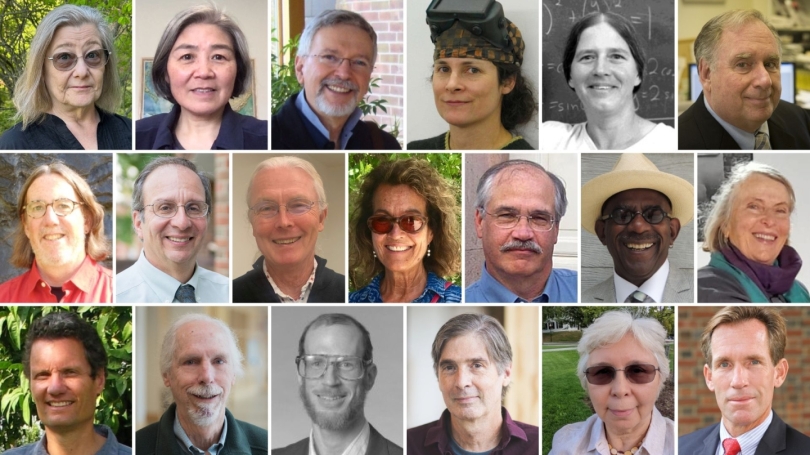
- Undergraduate
- Research
- Off-Campus Study
- News & Events
- People
Back to Top Nav
Back to Top Nav
Drawing on their long tenures at Dartmouth, many intend to remain active in scholarly and creative endeavors.
Access the entire original article here!
Nineteen long-serving faculty members in Arts and Sciences will retire from Dartmouth this year, each having contributed profoundly to the institution's academic life.
"Our retiring faculty in the Arts and Sciences have made extraordinary contributions—to their fields, to Dartmouth, and most of all to generations of students," says Elizabeth F. Smith, dean of the Faculty of Arts and Sciences. "The collaborations they fostered and the intellectual communities they helped shape will continue to have an impact for years to come."
Frank Magilligan
Frank J. Reagan '09 Chair of Policy Studies
Frank Magilligan has spent more than three decades at Dartmouth exploring how water systems shape the Earth—from analyzing the impacts of hurricanes to reconstructing climates from 20,000 years ago using ancient flood data.
Fieldwork has taken the geographer to Iceland, China, and Peru, as well as waterways closer to home. "My graduate students and I have been documenting the significant geomorphic effects of Hurricane Irene that devastated numerous watersheds in Vermont," he says.
A Fellow of both the American Association of Geographers and the Geological Society of America, Magilligan was awarded a Guggenheim Fellowship and the Dean of Faculty Award for Exceptional Service in 2020. This spring, he received the Melvin G. Marcus Distinguished Career Award from the American Association of Geographers for his outstanding research and commitment to mentorship. This year, he will be honored with Dartmouth's Elizabeth Howland Hand-Otis Norton Pierce Award for his outstanding teaching of undergraduates.
Magilligan credits Dartmouth's small size with fostering interdisciplinary collaboration. "I've had some of the best conversations of my life in the Fairchild parking lot, running into colleagues from physics, astronomy, Earth sciences, and environmental studies," he says. "Sometimes those conversations lead to great professional adventures."
In retirement, he looks forward to finishing the book he began during his Guggenheim fellowship—an exploration of the science and politics of river restoration across the United States.